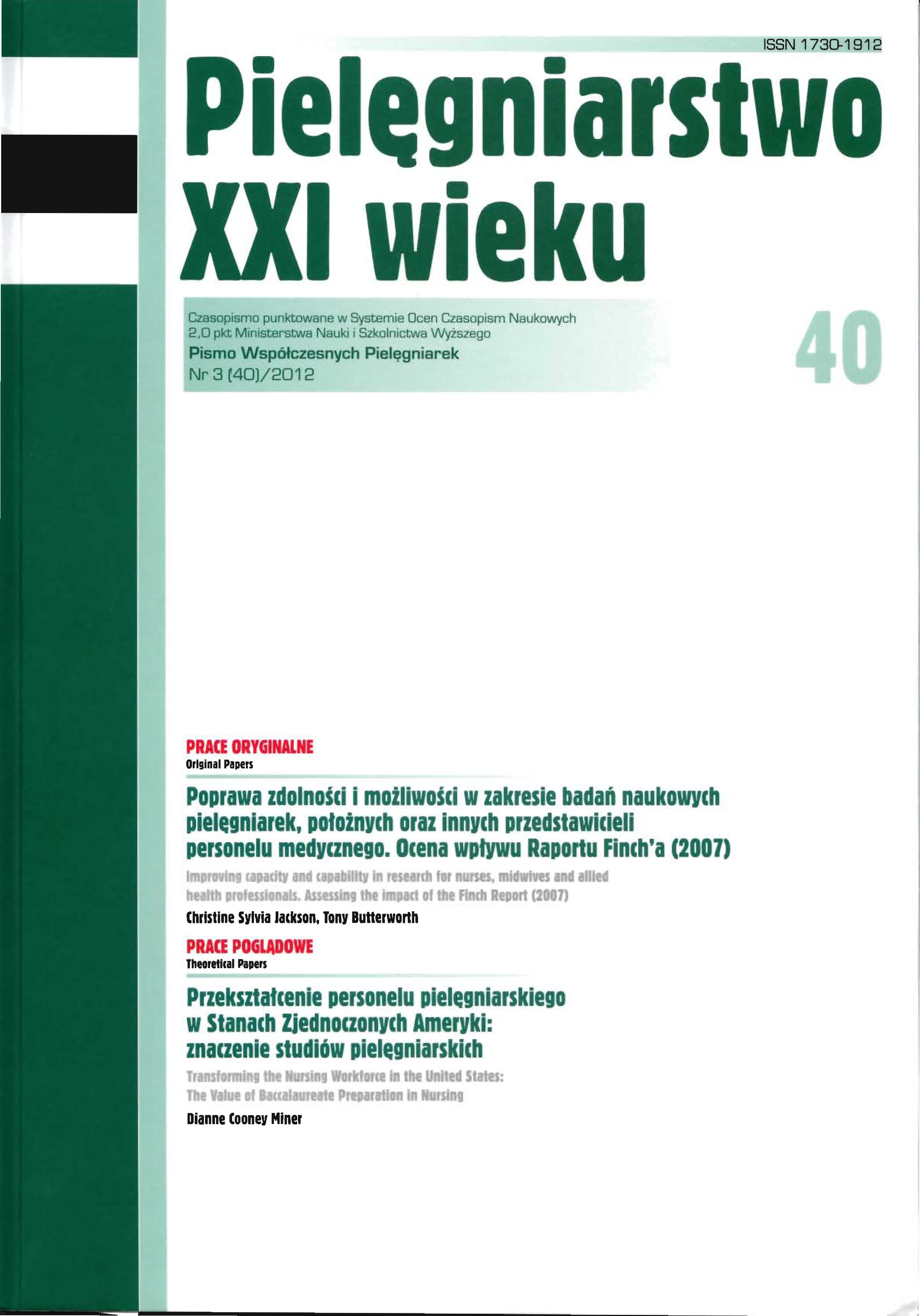Improving capacity and capability in research for nurses, midwives and allied health professionals. Assessing the impact of the Finch Report (2007)
Keywords:
scientific research, Finch ReportAbstract
IMPROVING CAPACITY AND CAPABILITY IN RESEARCH FOR NURSES, MIDWIVES AND ALLIED HEALTH PROFESSIONALS. ASSESSING THE IMPACT OF THE FINCH REPORT (2007)
The publication on “ Developing the best research professionals” known as the Finch Report (2007) has provided the UK with a platform from which a number of initiatives supporting clinical academic career pathways has developed.
The UK has a sustainable and funded programme of Masters, doctoral, postdoctoral and senior clinical lectureships which are developing the research competences and career opportunities for nurses, midwives and allied health professionals. There is demonstrable impact of improved capacity and capability in research with masters’ students becoming more successful in obtaining competitive PhD awards. Awardees on higher-level programmes are leading their own research groups and conducting clinical trials and the mentoring schemes offered to senior awardees is now being cascaded down to more junior researchers thereby assisting in sustainability of the research career pathway.
References
1. Developing the best research professionals. Qualified graduate nurses: recommendations for preparing and supporting clinical academic nurses of the future. Report of the UKCRC subcommittee for Nurses in Clinical research (Workforce); 2007.
2. Developing a clinical academic career for nurses and midwives. Council of Deans and Heads of UK University Faculties of Nursing, Midwifery and Health Visiting. A consultation paper; 1999.
3. Butterworth A, Jackson C, Brown E, et al. Clinical academic careers for educators and researchers in nursing. Journal of Research in Nursing. Sage Publications, London, 2005; 10 (1), 85-97.
4. Butterworth T, Jackson C, Orme M, et al. StLaR HR Plan Project. Phase II Strategic Report. Developing and sustaining a world class workforce of educators and researchers in health and social care. A report to the Strategic Learning and Research Committee (StLaR) Project Report. Strategic Learning and Research Advisory Group (StLaR)/National Health Service University. 2004. http://eprints.lincoln.ac.uk/920/
5. Best Research for Best Health: a new national research strategy. Department of Health, 2006.
6. Developing the Role of the Clinical Academic Researcher in the Nursing, Midwifery and Allied Health Professions. Department of Health; 2012.
7. Clarke C and Reed J ‘Case Study Research’ in Gerrish, K and Lacey A. (eds) The Research Process in Nursing,5th ed. Blackwell, pp302-315.
8. Jackson C and Butterworth T. Everyone’s business, no-one’s responsibility; reporting clinical academic research activity by nurses in the United Kingdom. Journal of Research in Nursing. Sage Publications, London, 2007; 12(3) 213-223.
9. Pathways to the future: the early career of researchers in the UK. A report by the Council for Science and Technology, 2007.
10. Competency Framework for Clinical Research Nurses. October 2011 [Online],Available from
http://www.rcn.org.uk/development/researchanddevelopment/rs/publications_and_position_statements/competencies Accessed 6th October 2011.
Downloads
Published
Issue
Section
License
Copyright (c) 2012 Christine Sylvia Jackson, Tony Butterworth (Autor)

This work is licensed under a Creative Commons Attribution 4.0 International License.




